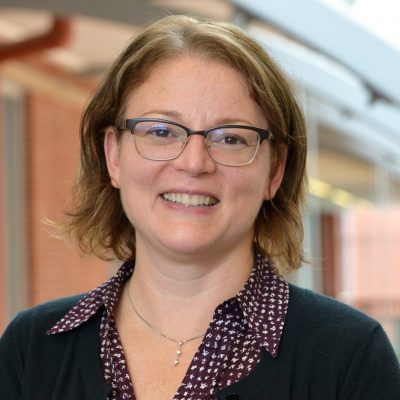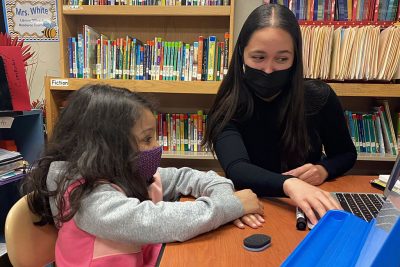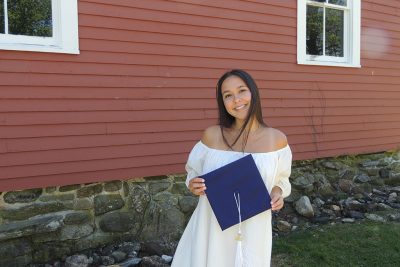A trio of UConn researchers are developing an interdisciplinary network to advance scientific understanding of emotional well-being.

Editor’s Note: The following piece was originally published on UConn Today, the University’s news website.
A group of UConn researchers have received a $2.5 million grant from the National Institutes of Health (NIH) to develop a network to address knowledge gaps on the topic of emotional well-being, an emerging public health concern. This project is one of six, totaling more than $3.13 million in year one funding from the NIH.
PIs on this project are Crystal Park, professor of psychological sciences and researcher at UConn’s Institute for Collaboration on Health, Intervention, and Policy (InCHIP); Sandra Chafouleas, Board of Trustees Distinguished Professor of educational psychology and director of the Collaboratory on School and Child Health; and Fumiko Hoeft, professor of psychological sciences and director of the Brain Imaging Research Center (BIRC).
The research team brings diverse strengths to the table. Park has extensive experience in measurement development and studying emotional well-being and mind-body interventions. Chafouleas is an expert in child development and intergenerational approaches to wel-lbeing. Hoeft brings her expertise in neuroimaging and cognitive neuroscience.
Emotional well-being is a broad health category that encompasses measures such as life satisfaction, happiness, meaning and purpose, and positive emotions.
While scientists and healthcare professionals have become increasingly accepting of the critical role emotional well-being plays in promoting public health, research has been slowed by several challenges. Scientists currently lack a consensus on the essential components of emotional well-being, valid ways to measure these components, and mechanisms to inform interventions.
The group will address these research challenges through the creation of a multidisciplinary network. The network aims to identify and measure components of emotional well-being, study its biological mechanisms, and then focus on the potential role of mind-body interventions in promoting it.
The UConn researchers will create the “M3 Network of Emotional Wellbeing (M3EWB, pronounced “mube”). M3 stands for Measurement, Mechanisms, and Mind-Body Interventions – the three areas the researchers will focus on.
“We are thrilled to partner with the other networks around the country, and for UConn to become a central hub in emotional well-being.”
Specifically, this project will create an online conceptual and methodological resource for researchers to comprehensively assess emotional well-being. It will catalogue for example, not only self-report methods, but also objective indicators like brain imaging.
Second, this project will uniquely study how emotional well-being plays out across the lifespan. Children, caregivers, and adults with health challenges face substantially different burdens. Yet, to date, emotional well-being research has minimally addressed lifespan-wide questions. By focusing on children and caregivers, who are often excluded from this kind of work, the researchers at UConn will shed new light on populations whose experiences are critical to advancing the field’s understanding of emotional well-being and how experiences may transfer from caregiver to child.
“Growing evidence supports that these challenges and burdens can be passed intergenerationally,” Chafouleas says. “It is important to not only understand the relevance of different components to emotional well-being across the lifespan, but the potential for mind-body interventions to elicit synchronous effects, such as between caregiver and child.”
Third, the team will address the important but understudied issues of whether mind-body interventions like yoga, tai chi, or meditation may improve emotional well-being, and if so, how. Mind-body interventions have been proven to help reduce negative mental health states such as anxiety, depression, and stress. However, whether such interventions also promote emotional well-being remains to be explored. In a preliminary study, Park and colleagues found single sessions of yoga were associated with several aspects of emotional well-being.

Guided by Park, the team will study the relationship between mind-body interventions and emotional well-being. They will look at both mind-body interventions as a mechanism for improving emotional well-being and emotional well-being as an outcome itself. Further, the research from this network aims to identify the mechanisms through which mind-body interventions bring about these positive effects.
The work will also advance the field by capitalizing on Hoeft’s expertise and the resources at BIRC.
“This opportunity is particularly exciting for me as a neuroscientist, to charter into the understudied area of the biological mechanisms of emotional well-being,” Hoeft says.
The M3 Network of Emotional Wellbeing will be a champion for interdisciplinary collaboration in this field.
The UConn team will work with the other five networks to collectively advance the science of emotional well-being. Each network is working within their respective niches to tackle gaps in the field. This approach will lead to an overall greater understanding of how to study this topic.
“We hope our educational and training activities, as well as pilot grants we provide, will facilitate discoveries in emotional well-being research and help train the next generation of researchers,” the team says. “We are thrilled to partner with the other networks around the country, and for UConn to become a central hub in emotional well-being.”
For an issue as multifaceted as emotional well-being, this interdisciplinary approach is the most prudent and rewarding path to deepen our scientific understanding and promoting all of us, children, adults and caregivers alike, to live our full potential.
Those interested in learning more about the project can contact the research team at M3EWB@uconn.edu.
This work is supported by NIH Grant U24AT011281.



